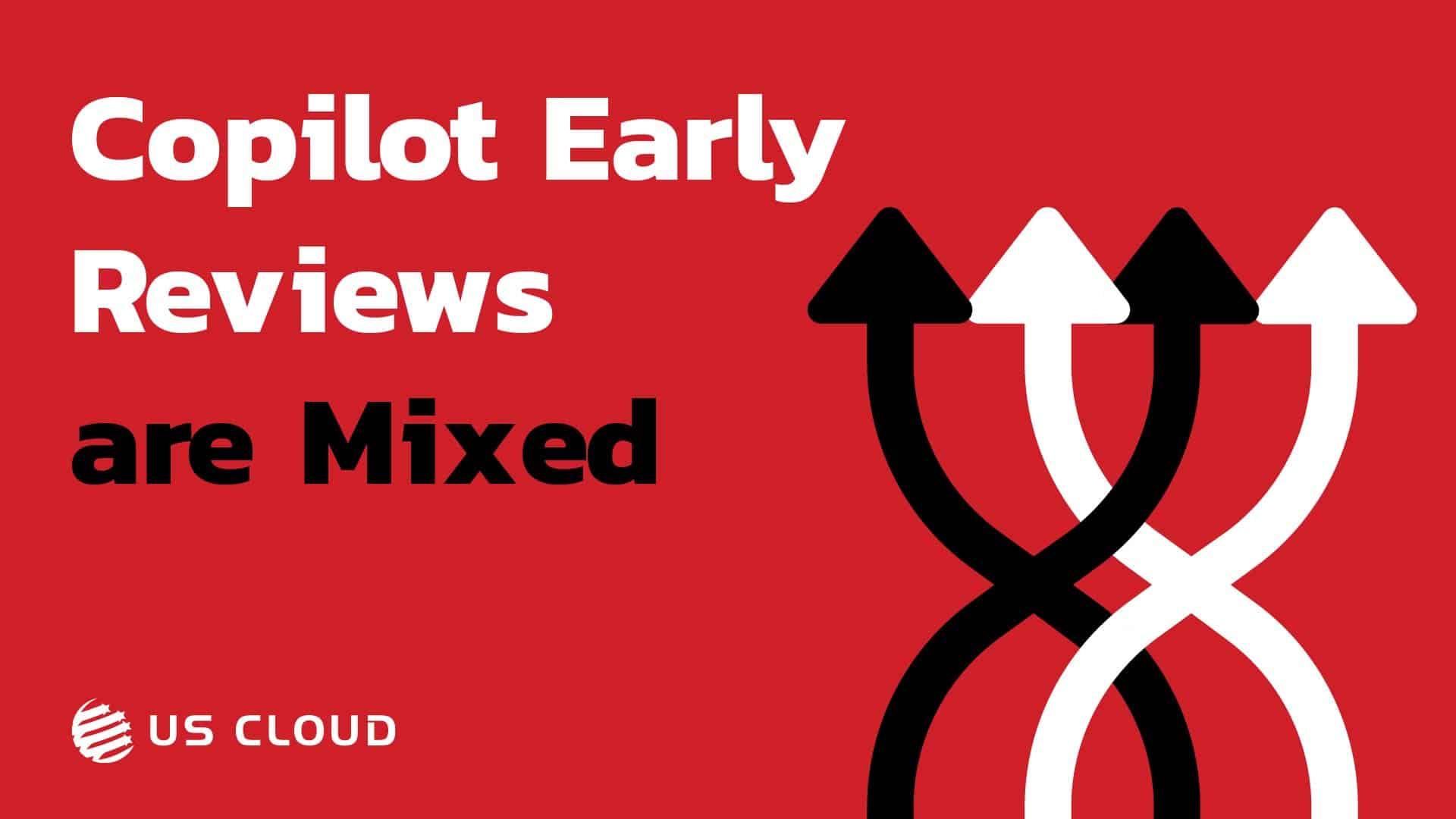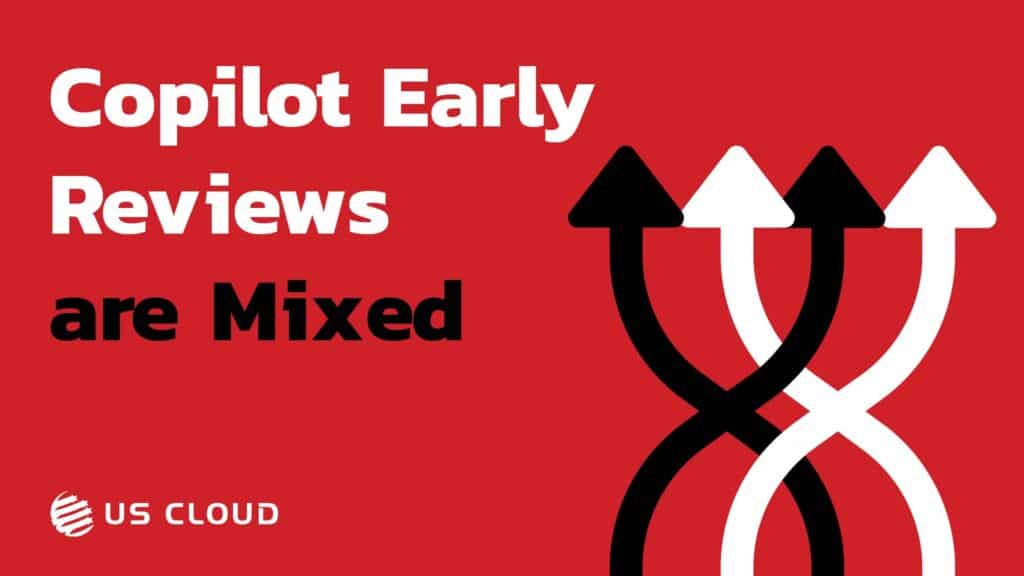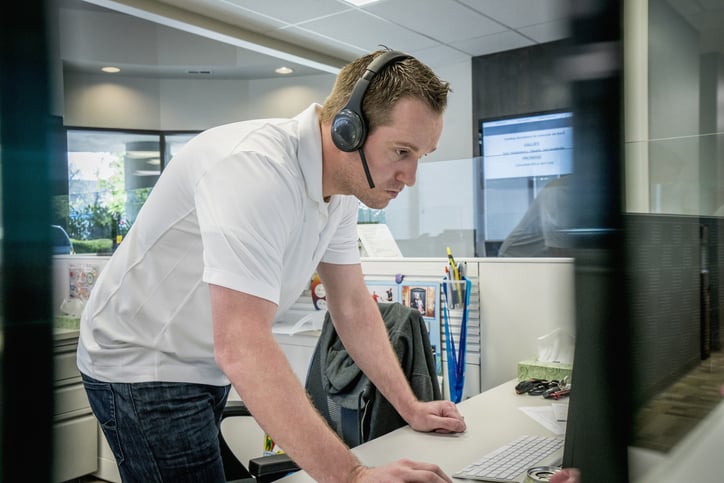

Early Copilot Adopters Are Skeptical.
Early Copilot Adopters Are Skeptical
Microsoft unveiled Copilot late last year in their Ignite showcase, showing off the new features of their latest AI instrument. Copilot can handle emails, recording emails, and much more, but comes at a steep price. Businesses paying for the standard version have to pay $30 per user per year, with Copilot Pro, the “full suite” version, charging even more. While it does integrate closely with multiple Microsoft products and services, the price alone is enough to make businesses uneasy in investing further. Now the beta testers from the past six months have released their consensus: useful, but maybe not enough to justify the price.

What is Microsoft Copilot?
As a quick rundown for those who haven’t kept up with Copilot so far, Microsoft Copilot is an artificial intelligence tool that is supposed to enhance productivity in Word, Excel, PowerPoint, Outlook, and Teams. This can even extend to Windows, Edge, and Bing depending on your package. Microsoft has pulled out all the stops for this product, such as teaming up with Meta Platforms to build a language model that helps build software on Azure platforms or integrating Copilot with Bing for business customers.
Copilot is meant to assist users in their daily processes and cut down on some of the more tedious tasks like writing emails, catching up on missed meetings, taking notes, finding information in your database, setting up spreadsheets, and beyond. While these are all impactful, early users find that the functionality is nice but a bit pricey.
The Cost of Copilot Efficiency

Microsoft hopes that Copilot will be one of its biggest hits in the past few decades. This AI upgrade integrates into multiple Microsoft products and uses the same technology as OpenAI’s ChatGPT. It’s functionality as a stand-in AI assistant is undeniable, but the price point is what concerns most businesses. Companies that have been given a beta version to test have found that the few issues with the product coupled with the price have left them less enthusiastic.
Microsoft has invested billions of dollars to bring Copilot into the spotlight, the biggest investment being $13 billion in OpenAI. They truly believe that AI will reshape the way business’s function, from entrepreneurial endeavors to enterprise-grade projects. Copilot has been the buzzword across multiple industries for months now, but the early testing bugs aren’t promising. Issues with Excel and PowerPoint integration on top of the AI’s tendency to make mistakes cause workflow roadblocks that add time to a process instead of subtracting. Unfortunately, this isn’t the first time that Microsoft AI upgrades were met with mixed results.
Recent Microsoft AI Endeavors

In 2022, GitHub Copilot was released, which is an AI integration that helps programmers write code faster. The feature starts at $10 per month and has 1.3 million subscribers, which is 30% more than last quarter. While this is a success, Copilot in Bing has had a bit more trouble. While Microsoft rolled out this update with much fanfare, it hardly had an impact on Google’s search market share. While Microsoft had hoped for billions in new revenue through Bing closing in on Google, one year later and Bing has gained less than 1% of market share.
Around 90% of business executives polled by Boston Consulting Group say generative AI is the top priority for their company this year, with two thirds of those polled believing that it would take two more years at minimum to move past the hype phase and into the true innovative stage. 70% of those polled were only focused on small-scale or limited testing in a business environment. This is important because Microsoft is hedging their bets on company’s desires to pursue new uses of AI to drive the purchase of Copilot agreements. When Microsoft opened their doors to Copilot signups in November, any willing company had to sign up for a minimum of 300 subscriptions. Many companies were resistant to such a large commitment since Copilot is largely unproven this far. In January, Microsoft eased back on the minimum requirements, allowing businesses to try out Copilot with smaller batches.
A Mixed Bag of Copilot Reviews
Early on in testing, most early testers felt that Copilot was saving them time. Meeting summaries saved people 30 minutes per meeting and AI assisted writing saved users six minutes when writing first drafts. Some felt that the Teams integrations helped streamline communication and meetings, while others felt that Copilot across the board was almost a necessity right away.
Some felt that Copilot was lacking, however. Sometimes the generative tool would hallucinate, meaning that it would fabricate responses. Others said that Copilot made mistakes on notes and meeting summaries. These hallucinations could be vitally detrimental to productivity. One meeting summary had a fabricated worker talking about a nonexistent product approach, while other users found that asking the AI assistant to help crunch numbers would lead to false values, effectively doubling the time it took for them to finish their projects.
After the initial hype, Copilot use dropped by 20%. While the first month was booming, the second was falling behind. This forced Microsoft to introduce the lower threshold for users, but more companies have come out claiming that Copilot still has a way to go.
Keeping Your AI Learning Operational
Copilot offers quite a lot of functionality and productivity potential for companies, but since the product is in its infancy, there are bound to be some issues. A Microsoft support partner that not only understands Copilot but knows how to overcome some of its issues could help you regain some of that productivity and time lost in translation.
US Cloud is the world’s leading third-party Microsoft Unified/Premier Support alternative. Not only do we have a grasp on the importance of Copilot, but we can help support you across the board while saving you 50% or more on your annual support spend. Our fully domestic team of engineers can respond to your Copilot concerns in 15 minutes or less and gets your ticket done twice as fast as the leading competitors, Microsoft included. Get faster Microsoft support for less with US Cloud today.
